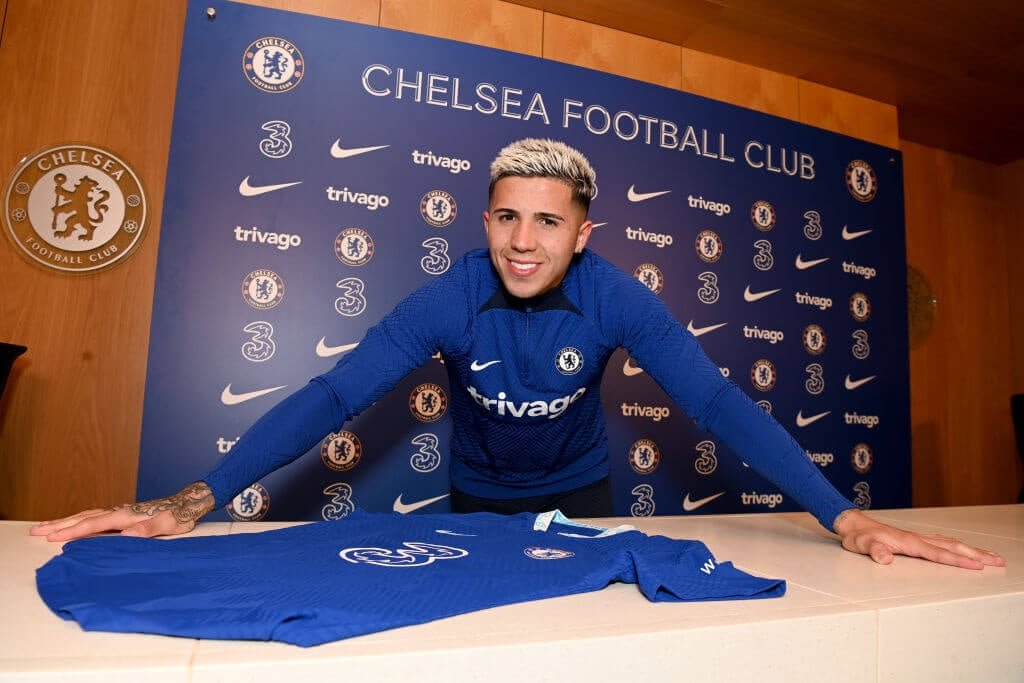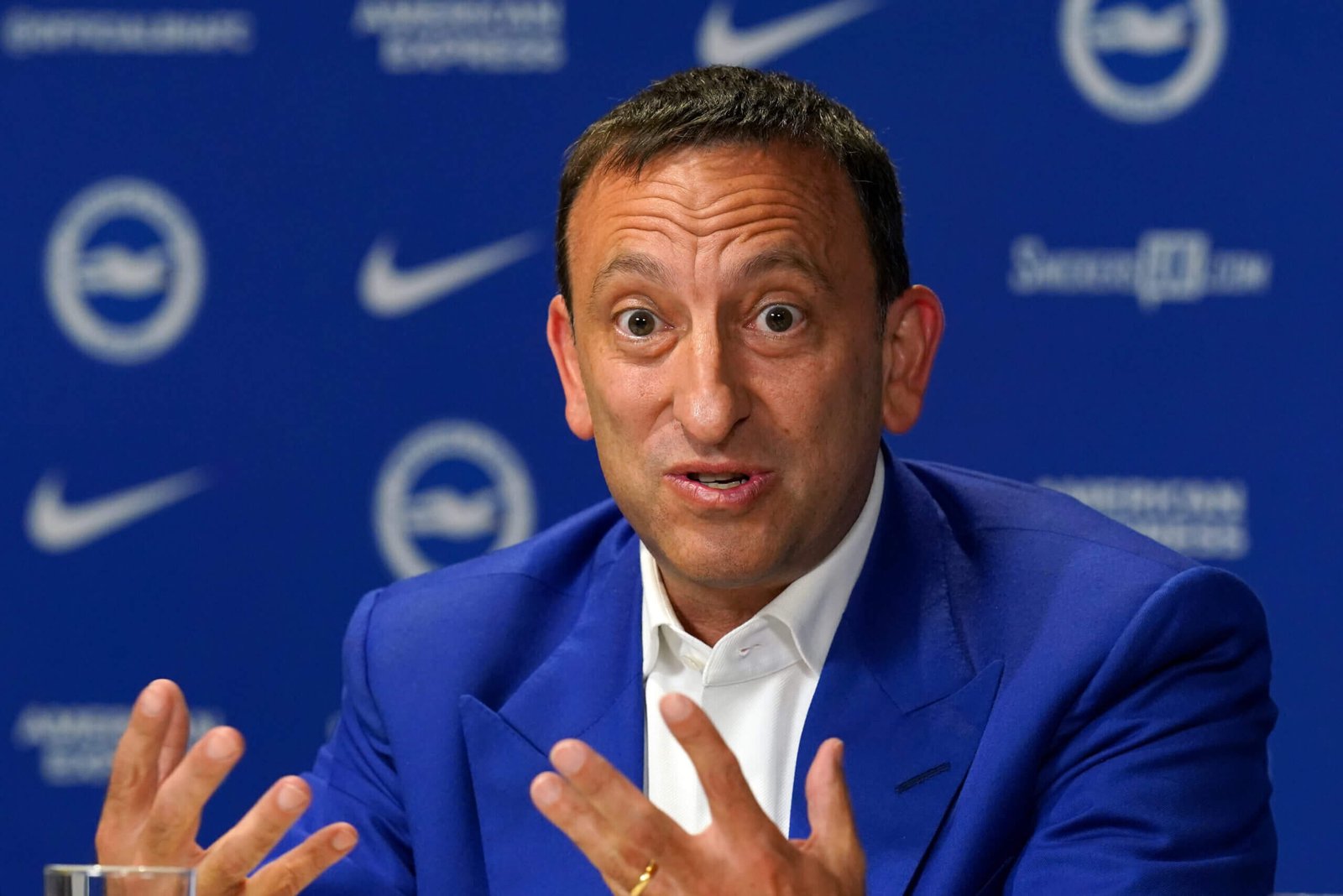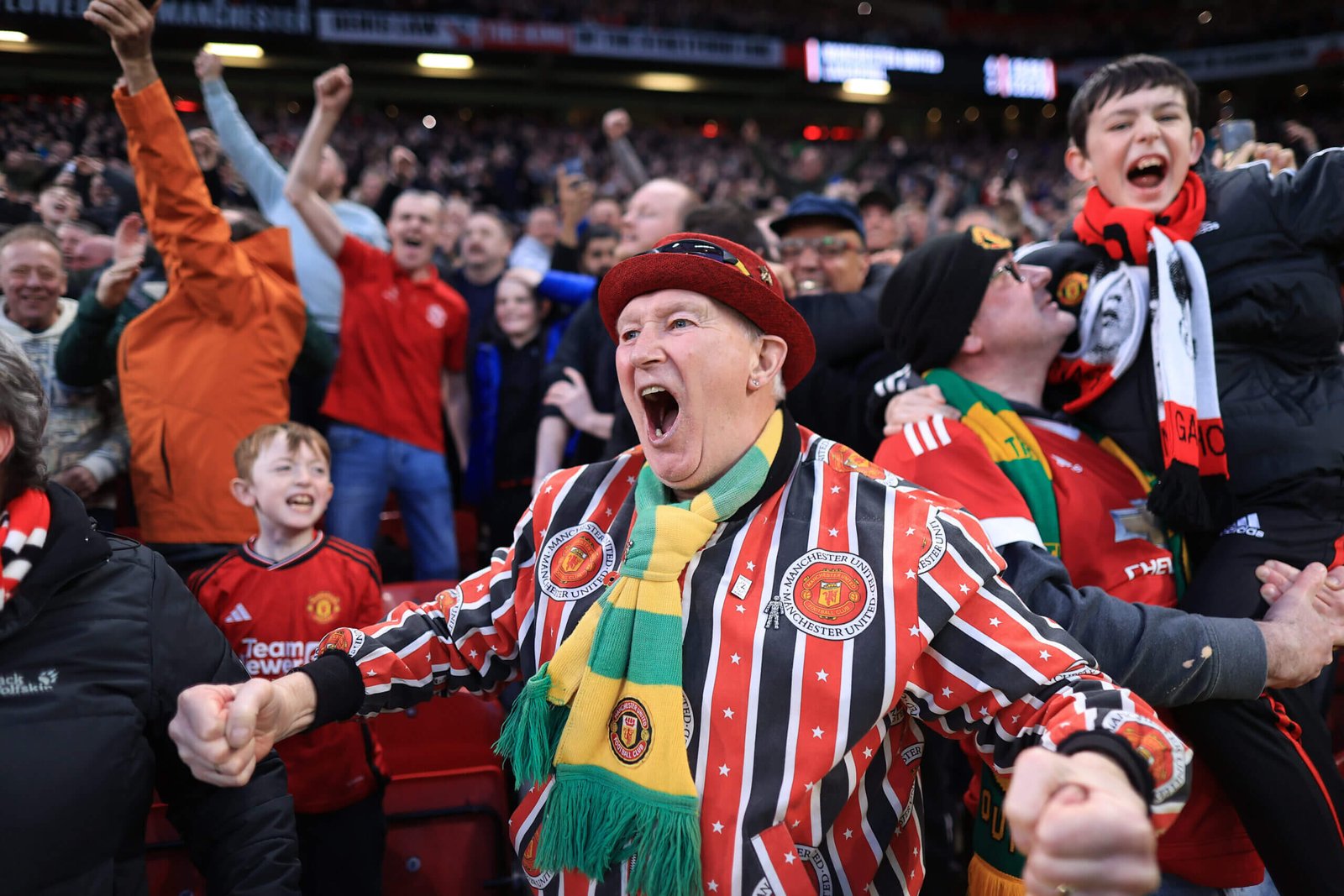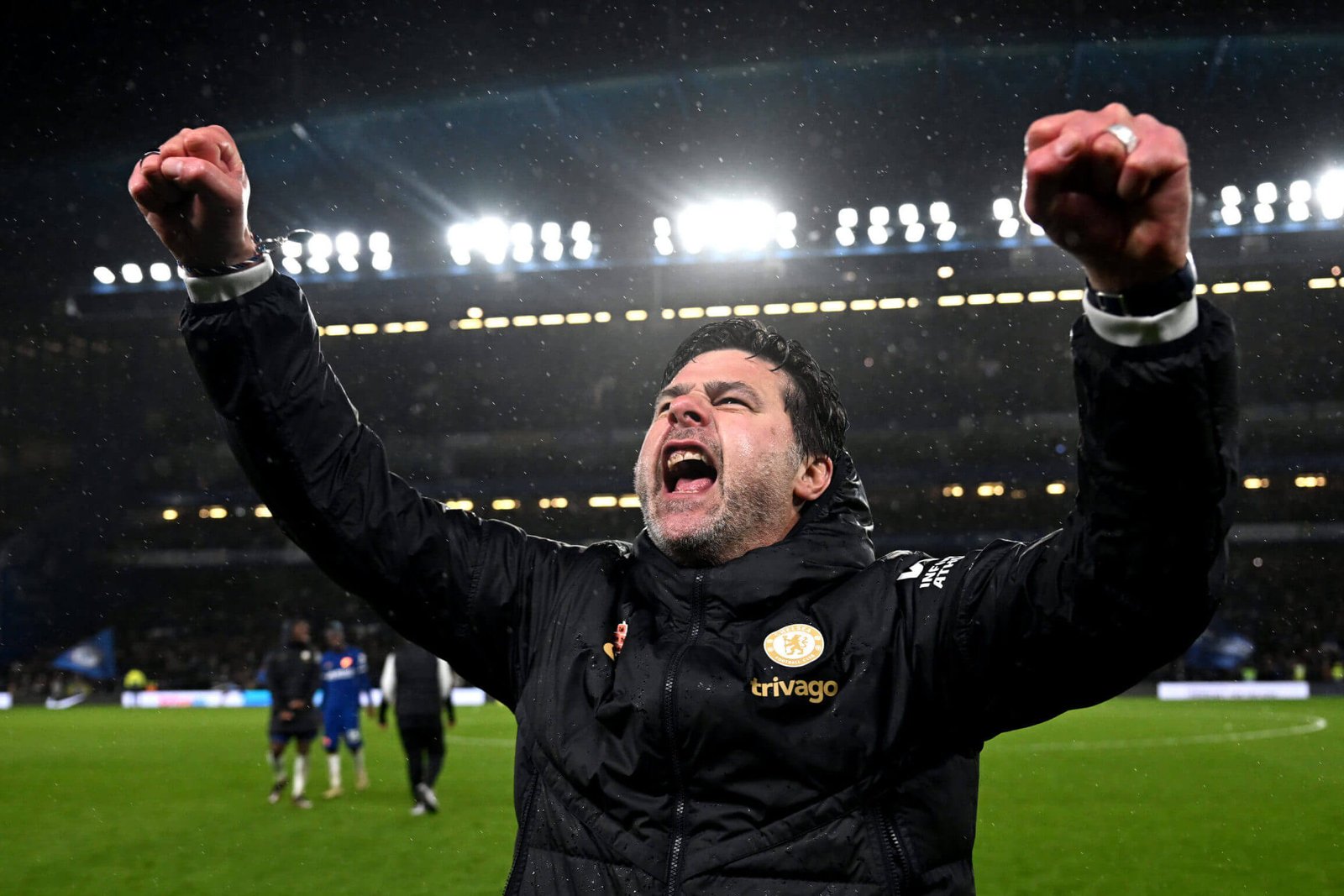Manchester United, Chelsea and Brighton & Hove Albion have been fighting for the same Premier League places for much of the season — and the summer break may well see that competition continue.
Chelsea and Brighton are looking for new head coaches after Mauricio Pochettino and Roberto De Zerbi both left by mutual consent respectively. Manchester United have been speaking to potential managerial candidates while incumbent Erik ten Hag is still in his post. A review of United’s season will take place this week, with Ten Hag’s position still far from assured despite Saturday’s FA Cup final triumph.
With clubs browsing in the same shop aisle, retaining anonymity is near impossible — with representatives of each coach happy to play teams off against each other in order to secure the best possible opportunity for their client.
Several head coaches — such as Kieran McKenna at Ipswich Town or Leicester City’s Enzo Maresca, who have both won promotion this season — are of interest despite being under contract at another club. For them, the choice is about more than an individual club or other openings around Europe: it is about taking the correct next step in their careers.
They might look at Bayer Leverkusen manager Xabi Alonso, who announced he would stay at the German champions next season, turning down the opportunity to explore openings at Liverpool, Bayern Munich and more. Vincent Kompany was on other clubs’ radars last summer after taking Burnley back to the Premier League but stayed in Lancashire for another 12 months and has now agreed to join Bayern Munich, despite Burnley’s relegation.
The candidates have all the power in this managerial market and the most promising options will likely have a pick of jobs. Clubs, even while interviewing candidates, will be hyper-aware that they are effectively being interviewed themselves.
How might they be trying to sell their projects?
The Athletic has run through the categories that these coaches will consider. The question is which problem they will be most prepared to live with (and how much money they have to play with)…
Squads
At a basic level, Chelsea and Manchester United have the most valuable squads. By Transfermarkt’s numbers, Chelsea’s is worth around £795million ($1.01billion at current rates), with Ten Hag’s side at £625million and Brighton at £432million.
But this is far too simplistic — squad appraisal involves massive subjectivity. Of course, at a basic level, some coaches will rate certain players more than others — but the real key is how they fit into a preferred system.
McKenna, for example, favours a 4-2-3-1 — which, incidentally, each of these sides generally played this season. The question is which he feels might fit that most naturally, and in Brighton’s aggressive full-backs and the narrow use of his double pivots in build-up, De Zerbi’s old squad potentially suits him best, with Chelsea not expected to be his destination.
For a manager who might prefer three centre-backs, Brighton and Chelsea have the more flexible personnel to adapt quickly.
Another factor is age profile. Chelsea’s squad is comfortably the youngest in the league; part of the job’s appeal is that group’s potential.
That, however, also brings its own pressures. Finishing fifth last year, and still dispensing with Pochettino, shows that Chelsea are in win-now mode but, at an individual level, their players are still in a development phase.
Others, meanwhile, might prefer working with veterans. Manchester United’s squad has an interesting age profile of several exciting youngsters — headlined by teenagers Kobbie Mainoo and Alejandro Garnacho — but parts of the squad, such as centre-back and central midfield, require a refresh.
Ten Hag celebrates winning the FA Cup with Mainoo and Garnacho (Eddie Keogh/The FA via Getty Images)
Brighton’s squad comes with a few caveats. The club’s recruitment (more on this later) is amongst the best in the league. Coaches know they will be furnished with talent but the business model is predicated on these players eventually being sold — a limitation of the job which candidates will need to accept.
Spending power
Chelsea have spent the most money over the last two seasons but it looks increasingly likely that this pipeline will begin to run dry. With profit and sustainability rules (PSR) limiting the amount that a club can spend season-to-season — and a “squad cost control” rule to be introduced from 2025-26 onwards — Chelsea appear to be at a point where they will need departures to finance arrivals.
The west London club have been publicly bullish about their financial position — and, in their defence, selling players has always been one of their strong points.

Chelsea have spent heavily over the last two years, including £105m on Enzo Fernandez (Darren Walsh/Chelsea FC via Getty Images)
Manchester United are in a relatively strong position when it comes to PSR, at least when compared to Chelsea, and will receive a boost after winning the FA Cup brought a place in the Europa League. With minority investors INEOS now in charge of football operations, United will also be something of a blank page when it comes to recruitment ahead of Sir Jim Ratcliffe and co’s first summer window at Old Trafford.
How much say in transfers will the manager or head coach have at these three clubs, though? Manchester United hope to have Dan Ashworth at the helm once they reach an agreement with Newcastle United, assisted by Jason Wilcox and Darren Fletcher, and Ten Hag, or his replacement, must be comfortable working under a sporting director.
Chelsea are similarly well-stocked with co-sporting directors Laurence Stewart and Paul Winstanley and, at Brighton, owner Tony Bloom’s data models and input on recruitment are the very fabric of the club. Brighton spend less than their rivals but they spend well — not that the head coach will have a say in it.
Infrastructure
This is where Brighton have a clear advantage. In managing director Paul Barber, technical director David Weir and owner Bloom, the club have flexed their muscle when it comes to recruitment since promotion to the Premier League.
Their top-half finishes on a lower-half budget are a testament to this, as is the development of Moises Caicedo, Leandro Trossard, Alexis Mac Allister, Yves Bissouma, Ben White, Kaoru Mitoma and Evan Ferguson. The coach’s role is clearly delineated, and although their scope is more limited than other jobs, that is not necessarily a negative, and can set them up for success.

Brighton owner Tony Bloom (Gareth Fuller/PA Images via Getty Images)
Manchester United’s infrastructure is something of an unknown — although new part-owner INEOS has recruited aggressively in attempting to secure leading lights off-field. Hiring Omar Berrada from neighbours Manchester City was an impressive, if unexpected, appointment but he is still on gardening leave, while Ashworth has been the doyen of clubs after technical directors for several years. Wilcox, who started work last month after joining from Southampton, has extensive experience in the City academy, with his role expected to encompass both recruitment and performance.
The proof, however, will be in how these three high-profile figures will work together — with Chelsea evidence of how issues can quickly arise among new colleagues.
The former RB Leipzig chief Christopher Vivell left the club last July after less than a year, with more responsibility given to co-sporting directors Winstanley and Stewart, who were central to the decision to appoint Pochettino. Less than 12 months later, he is gone.
Emotional connection
Manchester United represents the biggest opportunity for an individual to stamp their name onto the fabric of a club. Supporters have showered coaches with love whenever they have shown signs of rebuilding the club following Sir Alex Ferguson’s retirement. The popularity of Ole Gunnar Solskjaer, at times, and the support shown to Ten Hag during the messy divorce from Cristiano Ronaldo is testament to this.

Manchester United fans celebrate beating Liverpool in the FA Cup this season (Simon Stacpoole/Offside/Offside via Getty Images)
Chelsea managers, even when they experience success, are rarely taken into the heart of the club in the same way. They don’t often last more than two seasons and are more disposable entities. Since Jose Mourinho’s (first) departure, only record goalscorer Frank Lampard has been the subject of unadulterated devotion — those such as Antonio Conte, Carlo Ancelotti, and Thomas Tuchel garner more of a sense of warm respect.
At Brighton, with a smaller fanbase and less media exposure, the emotional connection is perhaps more palpable. Each of their last three managers — Chris Hughton, Graham Potter and De Zerbi — have been quickly taken to heart.
The challenge
The jobs at Manchester United and Chelsea both come with sizeable baggage. These are super clubs where the immediate expectation will be to deliver a top-four finish. Succeed in that and the expectations only grow. With Manchester City and Arsenal both elite teams and Liverpool in the title race until the final weeks, this is a stern task.
In each case, interest levels mean these clubs have unforgiving news cycles; these are jobs that chew up the unprepared, and even those who are. At Chelsea, for example, the last manager to coach three full seasons was Mourinho during his first spell of 2004-07. No Manchester United manager has reached that number since Ferguson.
Whereas Brighton have shown repeatedly that they are prepared to build a project and the coach’s day-to-day existence is more under the radar, it is the opposite at United and Chelsea. This may not be an appealing proposition, despite the clubs’ prestige. The rewards, however, are by far the greatest.

Pochettino celebrates Chelsea’s win over Manchester United in April (Darren Walsh/Chelsea FC via Getty Images)
To understand this more, The Athletic spoke to one experienced Premier League agent who has worked extensively with all three clubs, asking what advice they would give a client who was garnering coaching interest.
“It depends on the stage of their career,” said the agent, speaking anonymously to protect relationships. “If they were an emerging coach, trying to make a name for themselves, I’d tell them to go nowhere near Chelsea. There is a lot of outside influence and scrutiny from the media. Financially, yes, it’s great, and if you get your contract right, you might never need to work again. But what would it do for your reputation?
“In this case, clearly Brighton would be the best choice — you get leeway, the pressure is comparatively low, you can work with undiscovered talent and implement your tactics.
“Manchester United is somewhere between the two. With all the changes they’ve made, you don’t quite know the path they’re on. I’d probably only recommend it to an established manager who was definitely ready for the expectation — you need to be strong.”
(Top photo: Robin Jones/Getty Images)
Read the full article here


